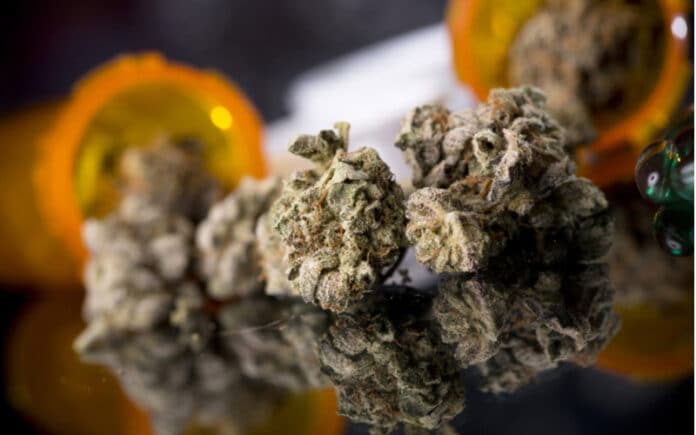The EU has approved for the first time the use of a medicinal cannabis product aimed at patients with two rare, but severe, forms of childhood epilepsy.
Doctors can prescribe Epidyolex – an oral solution of cannabidiol, which comes from the cannabis plant – if they think it will help sufferers.
It has been approved for use in the UK and other European countries, but the NHS does not currently recommend it.
But some parents want alternatives that contain a component not in this drug.
Last month, the UK’s National Institute for Health and Care Excellence made an initial decision not to recommend prescribing Epidyolex, due to lack of evidence of long-term effectiveness.
Final guidance is due later this year.
What is Epidyolex?
The drug does not contain any of the psycho-active component of cannabis, a compound called tetrahydrocannabinol (THC).
Some parents, who have travelled to the Netherlands to buy cannabis medicines, feel the treatment will not help many children because it does not contain THC, which they argue has helped their children.
Epidyolex has been approved as a treatment option for children as young as two with Lennox-Gastaut syndrome or Dravet syndrome – difficult-to-treat conditions that can cause multiple seizures a day.
The medication, developed by GW Pharmaceuticals, will be used in combination with another epilepsy medication called clobazam.
What about other medical cannabis products?
There are many different medical cannabis products. The use of ones containing THC was legalised across the UK in November 2018.
These treatments can be prescribed only by specialist doctors in a limited number of circumstances where other medicines have failed.
Few of these unlicensed prescriptions have been made on the NHS.
There are some other cannabis-based medicines that are licensed in the UK.
Nabilone is a medicine, taken as a capsule, that has been developed to act in a similar way to THC.
Doctors can give it to people having chemotherapy to help with nausea.
Sativex is a cannabis-based medicine that contains THC and CBD and is licensed in the UK for people with multiple sclerosis.
Recreational use of cannabis remains illegal.
What do experts say?
Ley Sander, Medical Director at the Epilepsy Society and Professor of Neurology at University College London, said: “This new drug will bring hope for some families and EU approval feels like a positive step. Medicinal cannabis, however, still remains a medical minefield and there are many hurdles ahead.
“CBD was not recommended by NICE for prescription on the NHS. It is important that the pharmaceutical industry continues to work with the medical advisory body to ensure that drugs are cost effective and that its long-term effects are clear.”














